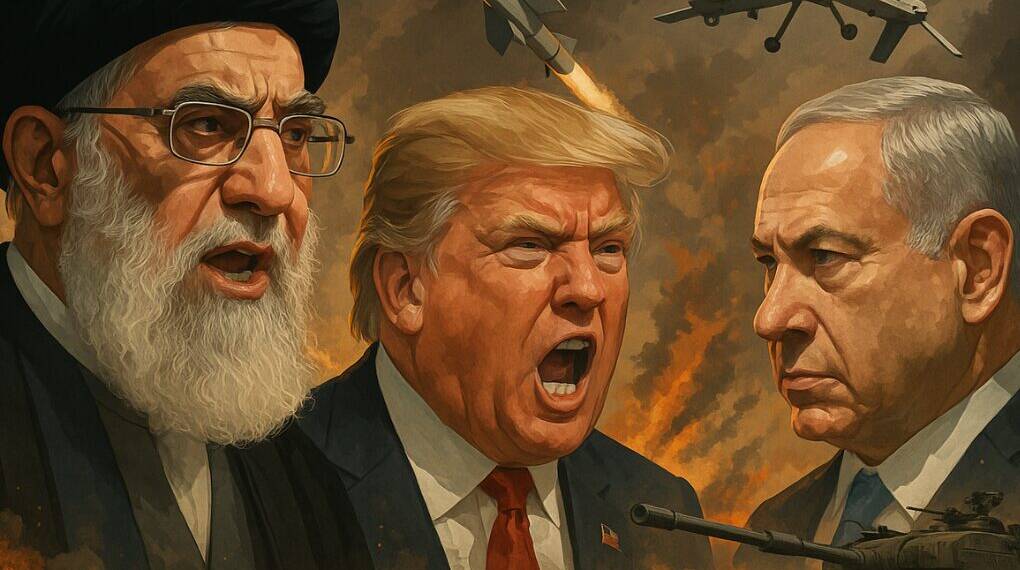In a week marked by missiles, military maneuvers, and a dangerously close brush with all-out war, a fragile calm now blankets the Middle East. But beneath the smoldering ruins of military bases and singed diplomatic ties, a revealing truth has emerged: each major player is claiming victory, and none appear eager to roll the dice on the next round of conflict.
At the heart of the drama: Iran, Israel, and the United States — each with a strategy, each with scars, and all dancing dangerously close to escalation.
Iran’s Calculated Counterstrike
After US B-2 bombers struck Iranian nuclear facilities in a surprise move, retaliation was inevitable — but not unhinged. In a tightly controlled response, Iran launched a volley of missiles at Al Udeid Air Base in Qatar, the largest US military installation in the region. Yet, this was a retaliation choreographed for symbolism, not mass casualties.
According to multiple Iranian officials cited in a New York Times report, Supreme Leader Ayatollah Ali Khamenei gave clear orders: strike back but avoid full-scale war. Tehran even transmitted warnings through backchannels to prevent unnecessary bloodshed. As a result, Qatar temporarily closed its airspace, and US forces braced for impact. Of the 14 missiles fired, 13 were intercepted. No American casualties. Minimal structural damage.
US President Donald Trump, uncharacteristically restrained, thanked Iran publicly for the warning, stating on Truth Social:
“They’ve gotten it all out of their ‘system,’ and there will, hopefully, be no further HATE.”
Israel’s Air Assault: Precision Meets Pressure
For Israel, the week saw a fierce and focused military campaign. Targeted airstrikes crippled key Iranian military facilities, delivering a strong blow to Tehran’s command infrastructure. Israeli defense officials showcased the operation as a tactical success and proof of regional air superiority.
However, the aftermath brought diplomatic fallout. When Israeli jets resumed operations mere hours after a ceasefire had been brokered, they drew sharp criticism — not from adversaries, but from their closest ally.
“I’m not happy with Israel,” Trump said in a fiery press briefing, angry that his administration’s diplomatic efforts were seemingly undermined.
The optics placed Israel in a precarious position: militarily assertive, but diplomatically isolated — especially after the US-led strikes had already pushed the region to the brink.
The United States: Instigator Turned Intermediary
In what analysts are calling the most volatile week of his second term, President Trump toggled from offense to diplomacy at breakneck speed. The initial US strikes on three Iranian nuclear sites marked a dramatic escalation — the first such operation since re-entering office.
But just days later, Trump pivoted to peacemaker, ordering Israeli jets to “TURN AROUND” in a viral Truth Social post and claiming the mission a strategic success. With Iran’s nuclear program “set back,” and no American lives lost, the administration quickly began crafting a narrative of victorious restraint.
This dual role — of aggressor and arbiter — left both allies and adversaries struggling to anticipate Washington’s next move.
Who Really Won?
Amid conflicting narratives and global spin, clarity is hard to find. But the story each actor tells reveals what they need the world — and their own citizens — to believe.
The U.S. celebrates a precision strike that neutralized a nuclear threat without triggering a broader conflict.
Israel lauds its air force’s effectiveness, asserting dominance over Iran’s military.
Iran touts its resilience and its ability to strike back at a superpower without being drawn into a war it cannot afford.
Ali Vaez, Director at the International Crisis Group, summed it up succinctly:
“Every side now has a narrative for victory, while avoiding the risk of stumbling into a larger conflict.”
Aftershocks and Uncertainty
But beneath the triumphant rhetoric lie real consequences. In Tehran, the economy teeters, civilians remain displaced, and even some within Iran’s Revolutionary Guard are urging de-escalation.
“Our country doesn’t have the capacity to continue this war,” warned Tehran city council member Sadegh Norouzi during a virtual town hall.
Questions about Iran’s nuclear ambitions remain unresolved. Its foreign minister, Abbas Araghchi, has embarked on a diplomatic tour to rally regional allies and counter the narrative that the strikes inflicted strategic damage.
“They did not achieve their main goal,” Araghchi insisted.
The Path Forward
While missiles have stopped flying — for now — the fundamental tensions remain. The week’s events have reshuffled regional calculations but solved none of the underlying disputes. Trust is brittle, red lines have faded, and the next misstep could once again light the fuse.
In a region where war often wears the mask of diplomacy and every quiet moment feels like the eye of a storm, one thing is clear: this was a pause, not peace.








